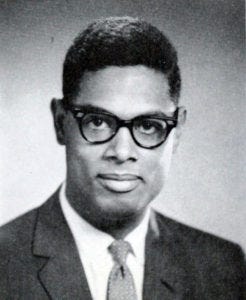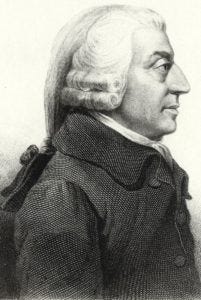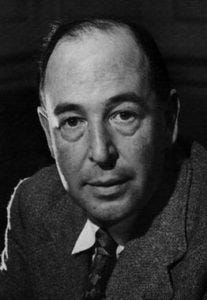By Robin Currie
Experts and prognosticators like to speak with boldness and conviction. This is especially true during times of uncertainty (and with a pandemic, civil unrest in our cities, and a fraught international order, it is safe to say that we are living in uncertain times). But while boldness and conviction can be admirable and even necessary, they should be counterbalanced by another character trait that is much less evident today: humility.
In the policy-making world, epistemic humility requires the expert to ask a series of questions: What if I’m wrong? How certain am I that my approach is the right one? How might I adapt in the face of new evidence? Such humility requires acknowledging the limits of one’s expertise.
Thomas Sowell
Now, we all need experts—specialists. Expertise is a benefit of the division of labor by comparative advantage; that’s why we call on a plumber to fix a burst pipe. But what if the experts claim to be able to fix something much bigger—say, the economy, society, poverty, perhaps even human nature itself? Further, what if, despite no proven record of success, they seem really confident about being able to do so?
In ancient times, prophets who got it wrong could be stoned to death. Today the stakes are not so high. Indeed, while experts who get it wrong can do much damage, generally to others, they tend to suffer little reputational harm themselves. Rather than acknowledging error and learning from it, they often compensate by doubling down on the boldness and conviction. Theirs, says Thomas Sowell, is “the vision of the anointed.”
Down to a Science?
In The Road to Serfdom (1944), Friedrich Hayek warned that humanity would not grow wiser until we acknowledged the foolishness of much of what we have done in the past. He revisited that topic 30 years later when he won the Nobel Prize in economics. In his acceptance speech Hayek did not “talk up” economics (or himself). Instead, he focused on the failings of his profession, blaming the serious inflation that then gripped the world on policies recommended by economists who had “made a mess of things” and had “little cause for pride.” Simply put, they had got it wrong.
But Hayek was just warming up. He accused his fellow economists not only of incompetence but of a lack of humility. As he saw it, they were guilty of displaying a “pretense of knowledge”—of endeavoring to seem more scientific than they actually were.
Given the complexity involved in economic analysis (what Don Lavoie would call the knowledge problem), Hayek said economists advising on public policy could only attain knowledge that was true but imperfect. For him, this was more valuable than the exact knowledge they claimed to have, which was likely to be false and lead to grave consequences. In his view, a more realistic—more modest—goal for economists would be to first do no harm.
Adam Smith
Unfortunately, however, many experts have anything but modest goals. Adam Smith saw the danger in this kind of thinking, calling a person who believes in the ability of a central authority to engineer society successfully “the man of system.” Such an individual, said Smith, was “apt to be very wise in his own conceit . . . enamoured with the supposed beauty of his own ideal plan of government.”
These are the experts who think they know how to run people’s lives better than the people do themselves. Even experience does not deter them, so convinced are they of the rightness of their actions. As New York University economist William Easterly warns, much social and other damage has been done by this kind of thinking, leading to what he famously calls “a tyranny of experts.”
The Best-Laid Plans
When it comes to evaluating government policies and programs, it’s not intentions that matter but results. Nowhere has this been truer than in efforts to end global poverty (though it might equally apply to the War on Poverty in the United States). Here, a primary mover has been Columbia University economist Jeffrey Sachs, who wrote a New York Times best seller on how to do it and whom the New York Times Magazine called “probably the most important economist in the world.” Sachs aimed high—to “bend history.”
Much like the targets of Hayek’s Nobel speech, Sachs articulated a scientific approach to eradicating poverty. Despite hundreds of billions in foreign aid, however, it hasn’t worked. Yet the failures did not lead to a rethink but to a call for greater political will, superior people in charge, and more money.
This outcome illustrates the difference between what Easterly calls “Planners” and “Searchers.” For Planners, world poverty is a technical problem for experts to solve. For Searchers, solutions are more likely to come from competition between individual problem-solvers able to draw on dispersed and local knowledge—the “wisdom of crowds” in action.
Heaven on Earth
Twentieth-century communism was the ultimate display of expert hubris. It promised not just a heaven on earth but a new type of human. Communists didn’t have God on their side—they didn’t need him. In their estimation, they had history and science.
Engels articulated what he called a “scientific socialism,” and Marx described communism as “the riddle of history solved.” Trotsky even envisaged the creation of “a higher social biologic type . . . a superman.”
But if communists promised heaven, what they delivered was unimaginable misery—more than 100 million dead since 1917, according to foreign policy scholar Joshua Muravchik.
Nationalism, the belief that “my country is better than your country,” can also have deadly consequences (notwithstanding the fact that some countries really are better than others, at least in the minds of the migrants who risk life and limb to leave theirs). But there is a key difference between nationalism and patriotism: while the former involves putting your country ahead of other countries, the latter calls on you to put your country ahead of yourself.
Promoting a Challenge Culture
The inability of planners to overcome the knowledge problem highlights the need for humility at the policymaker level. But we shouldn’t stop there. Given the current polarization in our nation—over race, politics, history—we need more humility on a personal level, too. What that requires is a willingness to consider the possibility that you could be wrong, that you don’t have all the answers, that you may not see things as clearly as you thought.
Humility also requires us to consider that others might have better insights, experience, and knowledge than we do. As many entrepreneurs understand, this is the value of true, as opposed to superficial, diversity. Exposure to different viewpoints is important for the leader of any kind of enterprise or undertaking. While discovering gaps in one’s own knowledge may be chastening, a good leader will be comfortable saying something like “I didn’t realize that was the case,” or “I never thought about the problem that way.”
John Stuart Mill
That’s why entrepreneurs often promote a “challenge culture” within their businesses. In such a culture, employees who believe they have a better way of doing things are not only encouraged to challenge their supervisors but have an obligation to do so. In the process, the business operationalizes John Stuart Mill’s insight on “the wise man”:
The steady habit of correcting and completing his own opinion by collating it with those of others, so far from causing doubt and hesitation in carrying it into practice, is the only stable foundation for a just reliance on it.
The Power of Positive Seeing
Though they may be out of step with the experts, entrepreneurs often also understand the value of failure.
Behaviorists and child psychologists may stress the need for an “everybody wins” approach to sports and to life in general—for a community, to quote Garrison Keillor, “where the women are strong, the men are good looking, and all the children are above average” (and in the gifted and talented programs). Some also promote the power of positive seeing. This is the technique of visualizing successful outcomes, whether in launching a business or shooting a basketball, before taking action.
However, what happens when, as inevitably it must, a desired outcome does not materialize? When you find out you or your venture are not as good as you thought? What do you do in the face of failure?
That’s when persistence can have a power that positive thinking lacks. Many (eventually) successful entrepreneurs recognize the power of this first cousin of humility. Unlike many policymakers or policy experts, they are often more ready to talk about their failures than their successes because they know the benefits of a trial-and-error process of improvement.
An Age-Old Challenge
To be sure, the proclivity toward arrogance and hubris is not just characteristic of the present hour. What are the tales of Icarus and Achilles if not cautionary ones? Or the fight between the giant Goliath and the shepherd boy David? In the Book of Proverbs, David’s son Solomon summed up the matter this way: “A man’s pride will bring him low, but the humble in spirit will retain honor.”
The German philosopher Josef Pieper extolled the value of humility, defining it as “man’s estimation of himself according to truth.” But he also stressed the value of high-mindedness—the striving of the mind toward great things. In his view, “A ‘humility’ too weak and too narrow to be able to bear the inner tension of cohabitation with high-mindedness is not true humility.”
C. S. Lewis
C. S. Lewis similarly emphasized the importance of truth to a proper understanding of humility. As the protagonist in his Screwtape Letters enthuses, “Thousands of humans have been brought to think that humility means pretty women trying to believe they are ugly and clever men trying to believe they are fools.” This extreme is what Aristotle branded “undue humility” and as far from “proper pride” as the opposite extreme of “empty vanity.”
A Fatal Conceit
The “weak” and “undue” versions of humility can be hard to spot in our current political discourse, which is marked by increasing stridency, vilification, and intolerance. Friedrich Hayek would have called the certainty and dogmatism on display today a fatal conceit. In his 1988 book of the same name, he described economics as an exercise in humility—“to demonstrate to men how little they really know about what they imagine they can design.”
It is unlikely their powers of imagination have improved significantly since then. The simple reality is that experts and nonexperts alike can get it wrong. Greater acceptance of that fact may be critical for the future of our free and open society.








